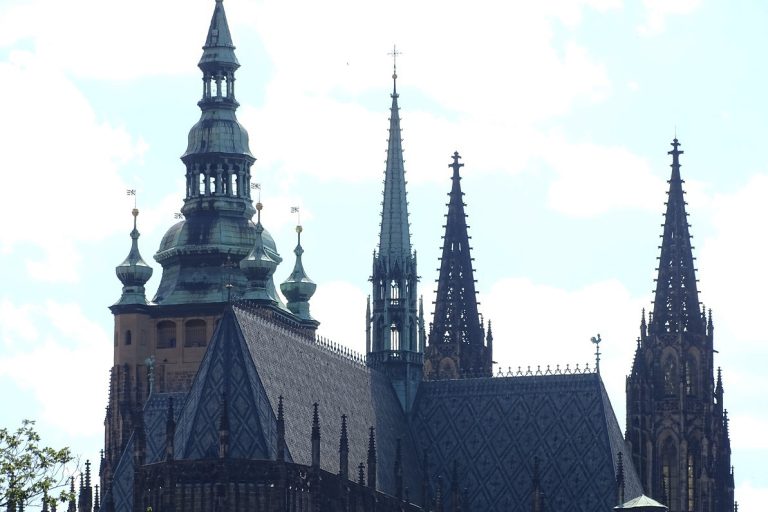The candidates most likely to move into Prague Castle are Pavel, Nerudova, and Babis. Photo credit: ZM / BD.
Prague, Nov 26 (CTK) – The Czech Interior Ministry announced yesterday that nine candidates had been approved to run for president, the same number as in the last two presidential elections, including all candidates indicated as favourites by the election polls.
The registered candidates are former PM and leader of the opposition Andrej Babis (ANO), far-right MP Jaroslav Basta (SPD), senators Pavel Fischer and Marek Hilser, former Mendel University rector Danuse Nerudova, former General Petr Pavel, Denisa Rohanova, who heads an association defending debtors’ rights, trade union leader Josef Stredula, and former Charles University rector Tomas Zima.
The ministry rejected the submissions of businessmen Tomas Brezina, Karel Divis and Karel Janecek, among others, as too many of the signatures supporting their candidacy were not accepted.
The Interior Ministry recognized 49,884 signatures for Divis, 45,894 for Brezina and 48,091 for Janecek, while at least 50,000 were needed.
These three candidates, alongside activist Pavel Zitko, will appeal the Interior Ministry’s decision, they told CTK.
In total, the ministry rejected 12 of the 21 applications submitted, mainly because they had not handed in enough signatures supporting their bid. By law, candidates are required to collect signatures from 10 senators, 20 MPs or 50,000 citizens. Rejected candidates may appeal to the Supreme Administrative Court by 30 November.
The ministry received 22 bids, but one of them was handed in after the deadline on 8 November.
Based on the polls, the candidates most likely to win are Pavel and Nerudova, both running with the support of citizens, and Babis, who was supported by his party’s MPs.
Fischer and Hilser are both running for president for the second time, following unsuccessful bids five years ago. They are both running with the support of other senators, though Fischer also received the signatures of MPs.
The first round of voting takes place on 13-14 January, with a second round two weeks later if necessary.






